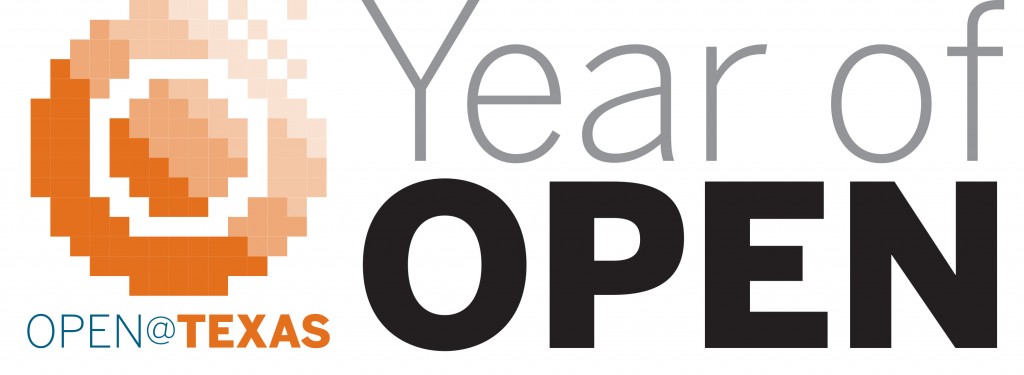As the world grows larger and closer at the same time, how do we ensure that we grasp the opportunities for sharing knowledge in ways that precipitate the ideas and innovation that will the global community?
Open access has been put forth as at least part of the solution to democratize information and expand knowledge through a lowering of barriers to access.
So what is open access? According to the statement of the 2002 Budapest Open Access Initiative: “By open access, we mean its free availability on the public internet, permitting any users to read, download, copy, distribute, print, search or link to the full text of these articles, crawl them for indexing, pass them as data to software or use them for any other lawful purpose….” Scholarly Communications Librarian Colleen Lyon has provided a more lengthy explanation of the idea at the Open Access blog.
Vice Provost Lorraine Haricombe came to the UT Libraries with a set of informed priorities for expanding the campus understanding of the concept of open access. Having developed a comprehensive strategy for the libraries at the University of Kansas — spearheading the effort to make it the first public university in the U.S. to adopt a campus-wide OA policy — she’s brought a reserve of energy and ideas to Austin to convert open agnostics to the cause.
It certainly doesn’t hurt that there are some nascent allies on the Forty Acres as the university investigates flipped classrooms and distance learning opportunities, and to that end, the Libraries have joined forces with Texas Learning Sciences to establish a year of awareness-building on concepts of open access with the hope of generating some grassroots momentum toward a campus-wide embrace of open practices.
The “Year of Open” kicked off in September with BYU adjunct faculty and co-founder of Lumen Learning David Wiley, who provided a promising overflow crowd with a high level explanation of open access and discussed the rationale for moving from a resource ownership model to the shared model that is at the heart of the open content movement. Wiley helped develop Lumen Learning as an open access advocacy organization dedicated to increasing student success and improving the affordability of education through the adoption of open educational resources by schools, community and state colleges, and universities. Video of Wiley’s presentation is available for viewing at the Texas Learning Sciences “Year of Open” page.
On November 5, the second “Year of Open” event will feature David Ernst, Chief Information Officer in the College of Education and Human Development at the University of Minnesota, as well as Executive Director of the Open Academics Textbook Initiative — a program developed to improve higher education access, affordability and success for all students through the use of open textbooks. Ernst created and manages the Open Academics textbook catalog — a single source for faculty to find quality openly licensed textbooks — and he and his colleagues are also developing a toolkit to help other institutions interested in starting their own open textbook initiative on campus. He’ll talk to attendees about how the adoption of open textbooks can help overcome the impediments of access and cost to improve student success outcomes.
After the holiday break, the “Year of Open” continues with events in the spring, including talks by Georgetown University professor and Executive Director of Georgetown’s Center for New Designs in Learning and Scholarship Randy Bass (February), and Bryan Alexander (April), senior fellow at the National Institute for Technology in Liberal Education (NITLE), as well as a panel on open access and the future of scholarly communication, also tentatively scheduled for April 2016. Check back with the Libraries calendar for coming details on these and other “Year of Open” events.

